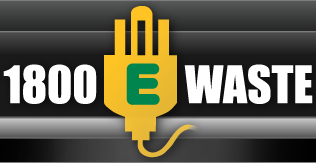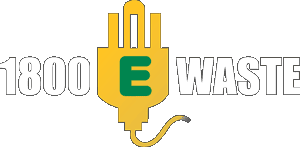How is my Electronic Waste Recycled?
Recycling your Ewaste is a complicated process; it is stripped apart by hand and put through several delicate processes in order to recover 95-98% of materials from your electronic waste. The raw material that remains, such as glass, copper, plastics and metals, can then be put to good use instead of wasting valuable space in landfill and contaminating the environment. The diagram below gives you a better idea of what happens once we collect electronic waste from your offices and homes...

